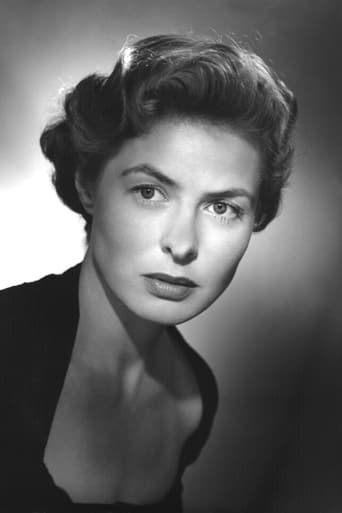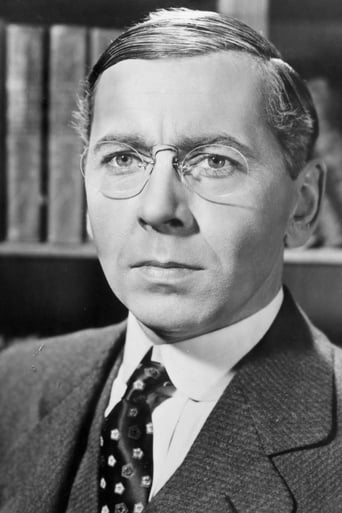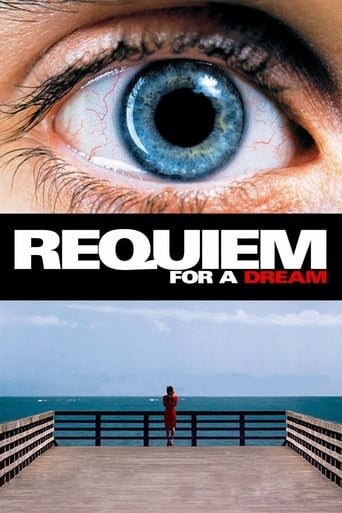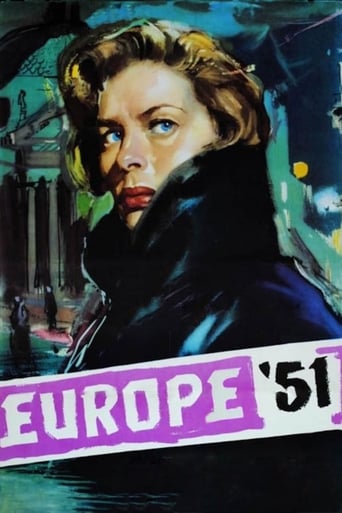
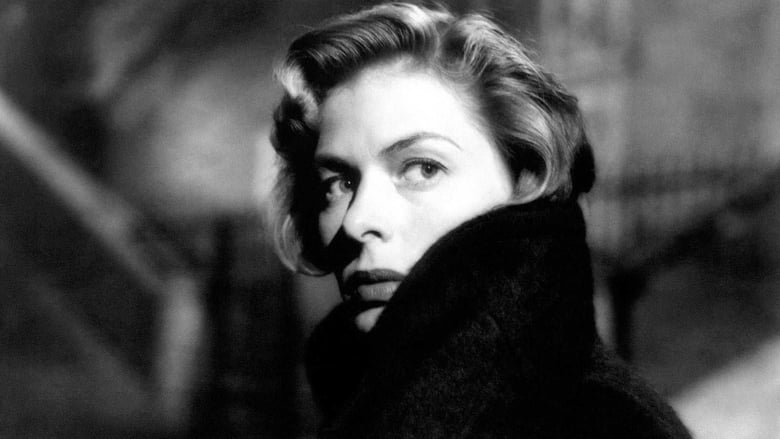
Europe '51 (1952)
A wealthy, self-absorbed Rome socialite is racked by guilt over the death of her young son. As a way of dealing with her grief and finding meaning in her life, she decides to devote her time and money to the city’s poor and sick. Her newfound, single-minded activism leads to conflicts with her husband and questions about her sanity.
Watch Trailer
Cast
Similar titles
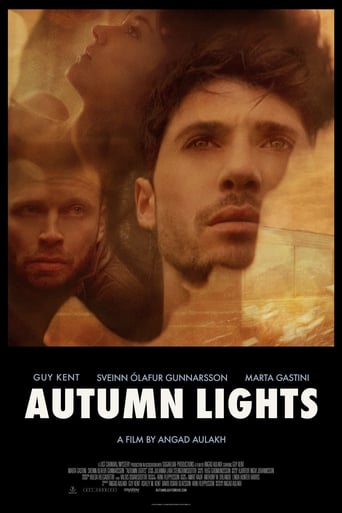




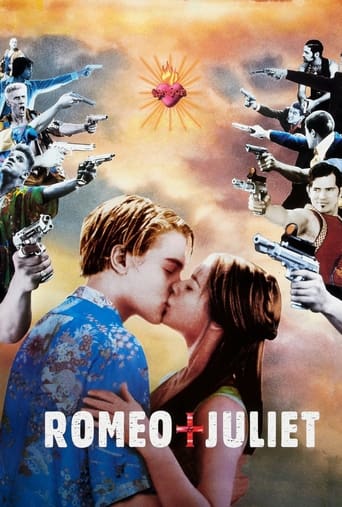
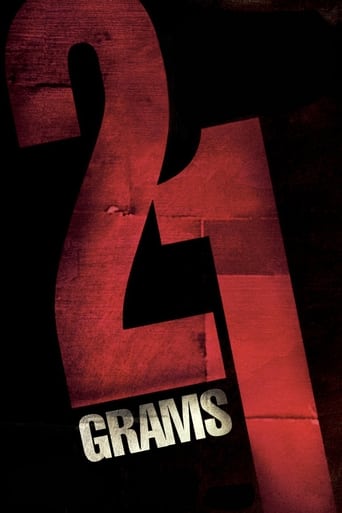
Reviews
To me, this movie is perfection.
Nice effects though.
In truth, there is barely enough story here to make a film.
The story-telling is good with flashbacks.The film is both funny and heartbreaking. You smile in a scene and get a soulcrushing revelation in the next.
The second of Ingrid Bergman's collaborations with Ingrid Bergman. Bergman plays a bourgeois woman whose son passes away. She blames herself, and starts looking for a way to rectify her guilt. She finds the answer in her newfound social conscience. Her life of luxury now seems horrid to her when there are so many suffering, and she dedicates her life to others. Meanwhile, her husband (Alexander Knox) doesn't understand it, and, after a particularly long absence when Bergman stays away to nurse a dying prostitute, he and the rest of her family decide to intervene. This is a powerful film about true charity, and it questions the motives of the bourgeois version of charity. This could very well be Ingrid Bergman's best performance. I thought it did underline its themes a bit too explicitly in its final act, and the very final scene went about three steps too far, as I see it. Giulietta Masina co-stars as a poor woman with six children whom Bergman befriends. I might be wrong, but it didn't sound like it was her voice (at least the voice we know from Fellini's films) dubbing this character.
It's a bit melodramatic, but up until Irene's final conversation with Cassatti the Commie, *Europa '51* is a very interesting film, first about a pampered rich woman's reaction to her son's death, then about the difference between windy Marxist propaganda and real compassion.However, at that point, Rossellini's original idea takes over: He wanted to make a film about what would happen if a truly saintly person ever showed up in the modern world. And he had a very good idea of what would happen--or at least a very insistent one. The people here obviously behave the way they do solely to make the point Rossellini wants to make, even when their behavior doesn't seem very plausible. In defter hands, such manipulation can work. Here, though, you can see the tracks Rossellini has rather clumsily laid down to move the story where he wants it to go.
After filming stories about the resistance of the Italian people during the Fascist and Nazi regimes, and the story of a German child against the barren landscape of Berlin after the war, Roberto Rossellini made a movie about Francis of Assisi and started a love and work relationship with actress Ingrid Bergman. In his evolution to works like 'The Rise To Power of Louis XIV', he made a series of melodramas with Bergman, of which 'Stromboli' and 'Voyage To Italy' are always considered the most important. Add to that list this fine drama, in which bourgeois housewife Irene suffers a transformation when confronted with the misery of those who had not been benefited with the European 'economic miracle.' Considered a saint by those she helped (Giulietta Masina included), Rossellini makes quite obvious that Irene reached that state by detouring from the usual roads she took as the wife of a prominent industrialist (Alexander Knox.) Not only has she a Marxist cousin who curiously does not preach his philosophy, but gives Irene advise whenever she talks about the misery she is discovering- but she also ventures into the slums, helps a single mother, a prostitute and a thief. The final section of the movie reminded me of 'María de mi corazón', a latter film written by Gabriel García Márquez, based on a real story. As in 'María ' there is neither opportunity nor chance to explain clearly what she's going through to husband or authorities, leading her to a dead end of desperation. Only sainthood will save her from the dehumanization around her.
I saw the Americanized dubbed and drastically cut version of this movie that seemed like it was made for television, complete with abrupt stops where they wanted to insert commercials. The story seemed interesting, but could not develop any nuance in only 108 minutes. Ingrid Bergman seemed a bit too overtly overwhelmed in this story after she started to see poverty in visiting the slums. The one shining performance even in the truncated time came from Giulietta Masina. In this shortened version, I could not tell if the music was original or added for melodramatic effect by the television censors. All and all not a very satisfying film, though the original might have been quite moving.
